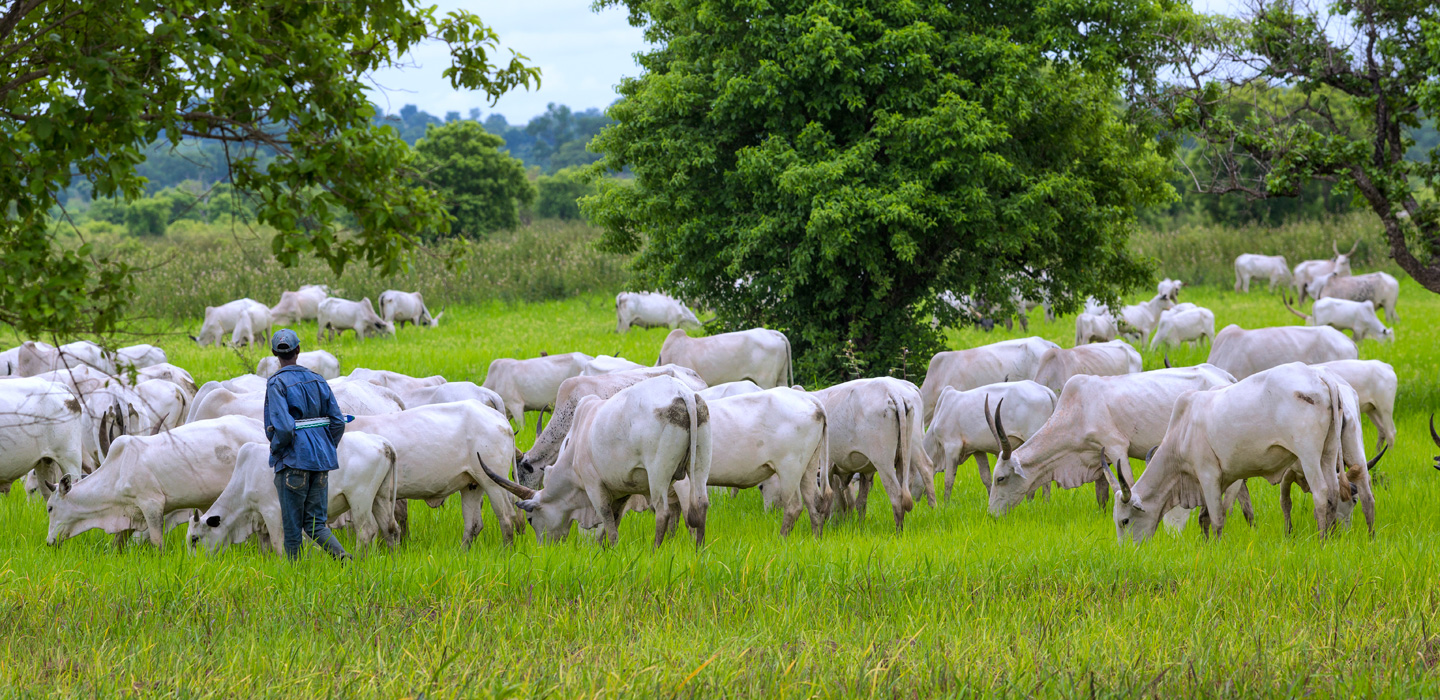UN's IFAD and the U.S. State Department help small-scale farmers to further reduce methane emissions
IFAD Asset Request Portlet
Asset Publisher
UN's IFAD and the U.S. State Department help small-scale farmers to further reduce methane emissions
17 November 2022
Sharm El-Sheikh (Egypt), 17 November 2022. The UN’s International Fund for Agricultural Development (IFAD) and the U.S. State Department announced a new partnership to support small-scale farmers in developing countries to better adapt to climate change and further reduce highly polluting methane emissions.
As part of the Global Methane Pledge partnership, the U.S. and IFAD will work together to prioritize methane mitigation in upcoming IFAD projects currently in the pipeline. These projects are valued at an estimated US$500 million and will apply low-methane techniques to what are often considered methane-emitting activities like livestock and paddy rice production.
“Currently, as much as 80 per cent of IFAD’s portfolio includes activities that have a role in contributing to the achievement of the methane pledge,” said Jo Puri, IFAD’s Associate Vice-President, Strategy and Knowledge Department, at the Global Methane Pledge event held today in Sharm El-Sheik.
“Small-scale farmers can make a valuable contribution to global mitigation efforts. IFAD is already working on low methane livestock methods. Better feed and better animal health care can make a difference in reducing methane emissions,” Puri added.
IFAD will identify and build upon lessons learned to reduce agricultural methane – and apply these methods within the context of IFAD’s goals to help vulnerable rural communities be more resilient, improve their ability to produce food and boost their overall economic development.
“This partnership will help get smallholder farmers the financial and policy support they need to reduce methane emissions while also increasing their resilience to the effects of climate change. IFAD is an excellent U.S. partner and I look forward to working with them on achieving the goals of the Global Methane Pledge,” said Rick Duke, Deputy Special Presidential Envoy for Climate.
Overall, small-scale farming contributes less to climate change than large-scale agricultural activities, as small-scale producers use fewer fossil fuel-based fertilizer inputs, use less machinery powered by fossil-fuel and emit less greenhouse gases.
“The partnership with the U.S. State Department is an opportunity for us to lead globally in addressing climate change at that mid-point between mitigation and adaptation. Many farmer-led programmes focused on increased productivity, can achieve economic development, adaptation, and methane mitigation goals simultaneously,” said Puri.
IFAD has committed US$1.2 billion in climate finance between 2019-2021, with most of the funding allocated to adaptation activities (US$1.1 billion).
Established in 1977, the U.S. is a founding member of IFAD and its largest donor - contributing US$1.1 billion and pledging an additional US$129 million during the current three-year replenishment cycle.
Note to editors:
The U.S. announced a Methane Pledge Action Plan at COP27 with actions across all sectors to reduce methane emissions. This plan includes new regulatory steps to reduce methane emissions in the oil and gas sector and over US$500 million in domestic investments to reduce agricultural methane emissions. Internationally, the U.S. has announced over US$25 million in support of developing countries in the Global Methane Pledge to advance national action plans and build methane abatement project pipelines.
More on IFAD's work to reduce methane emissions
IFAD is developing a new project together with the Green Climate Fund in East Africa (Kenya, Rwanda, Tanzania and Uganda) to bring the dairy sector down to zero net emissions. Together with the Global Dairy Platform and the Food and Agriculture Organization of the United Nations (FAO), they will provide technological solutions to increase productivity and reduce methane and other greenhouse gas emissions.
IFAD has also been a long-time supporter of sustainable rice intensification and has promoted specific techniques using less water to grow rice and reduce methane emissions. In Cambodia, IFAD is designing a project to improve irrigation for rice cultivation and reduce methane emissions.
Peatlands can also be a source of methane when excessively drained or burned. IFAD has been supporting sustainable peatland management in Southeast Asia to combat peatland fires and haze pollution for a decade.
Press release No.: IFAD/63/2022
IFAD invests in rural people, empowering them to reduce poverty, increase food security, improve nutrition and strengthen resilience. Since 1978, we have provided US$23.2 billion in grants and low-interest loans to projects that have reached an estimated 518 million people. IFAD is an international financial institution and a United Nations specialized agency based in Rome – the United Nations food and agriculture hub.
A wide range of photographs and broadcast-quality video content of IFAD’s work in rural communities are available for download from our Image Bank.
